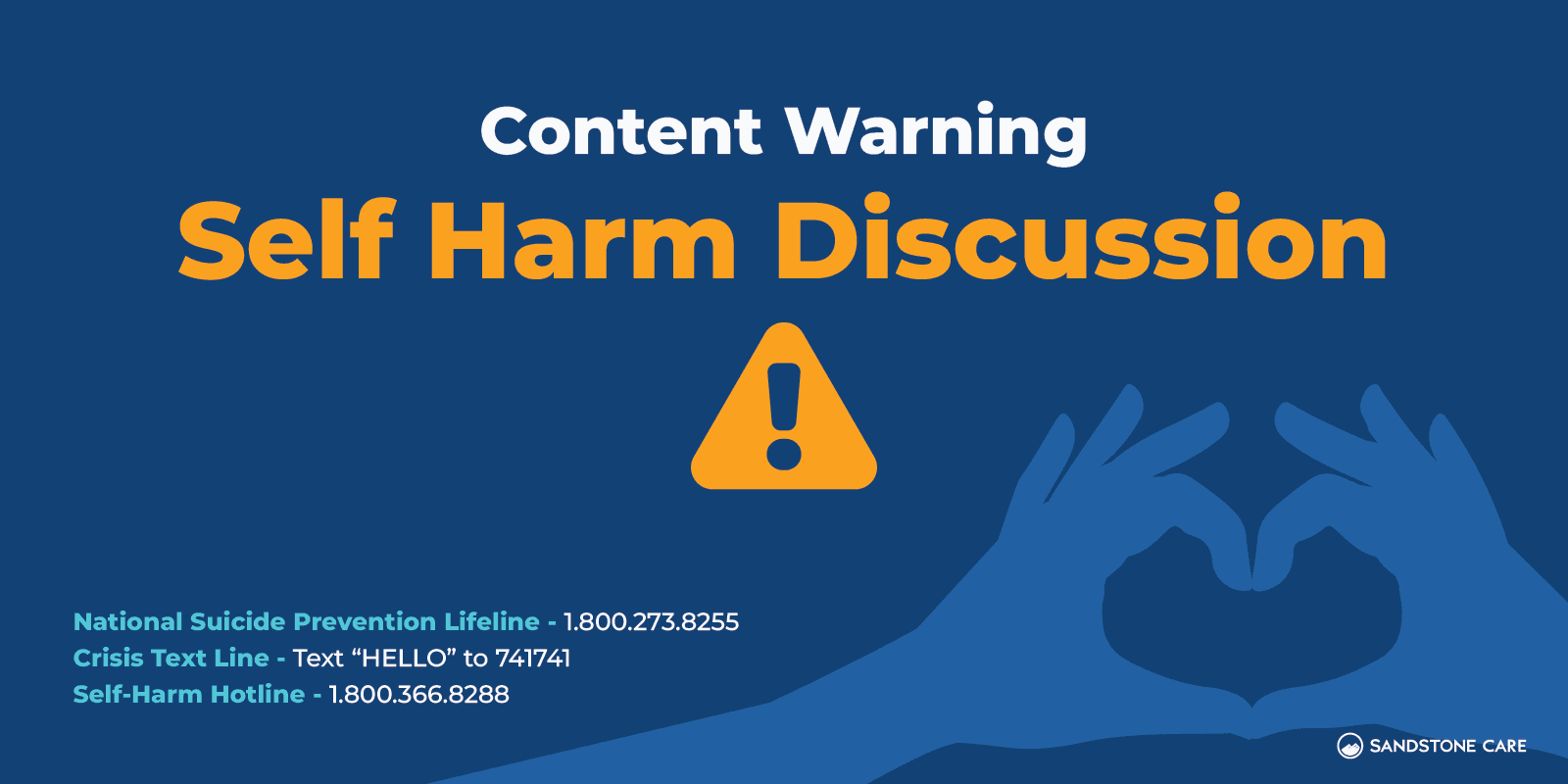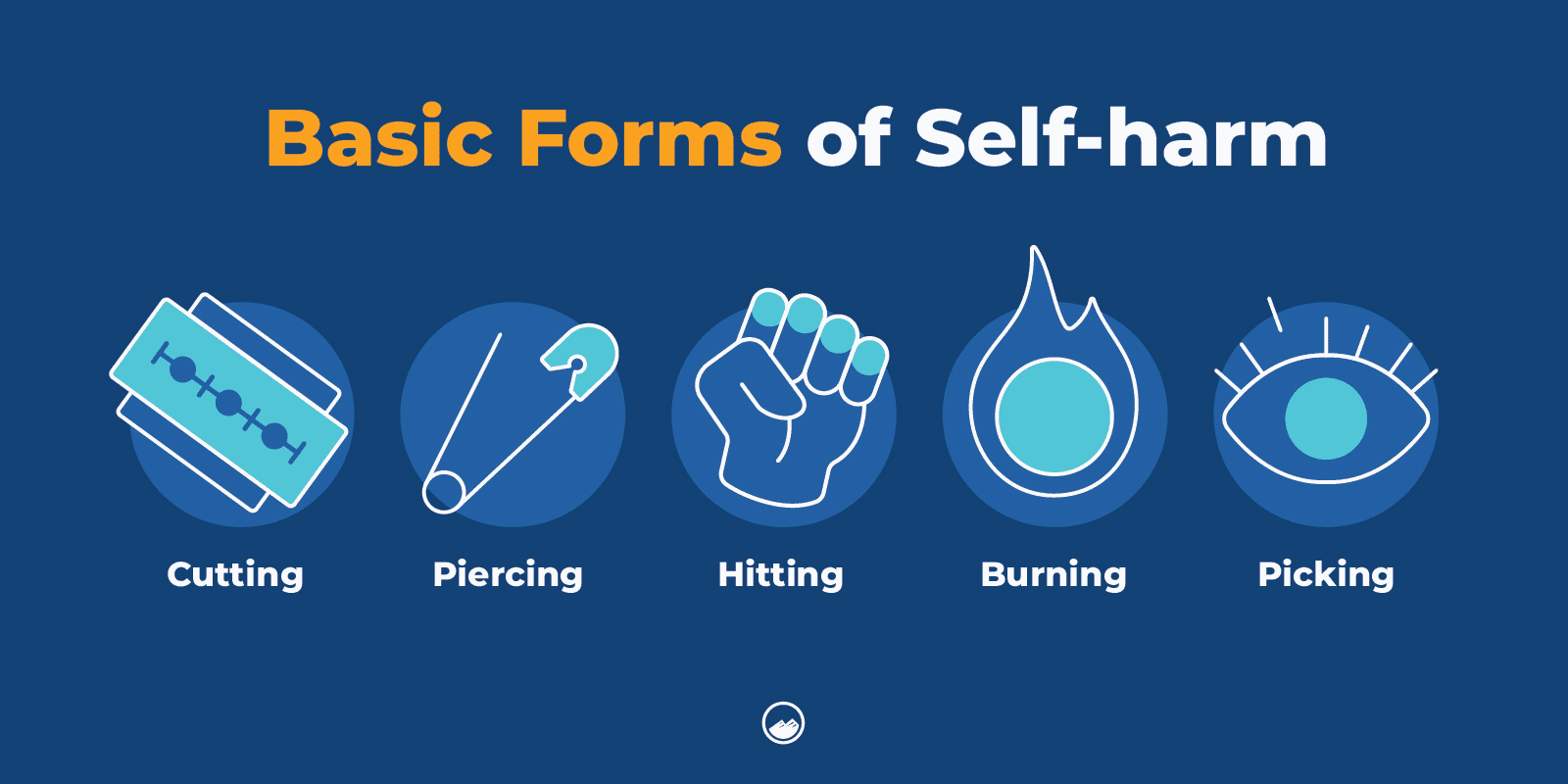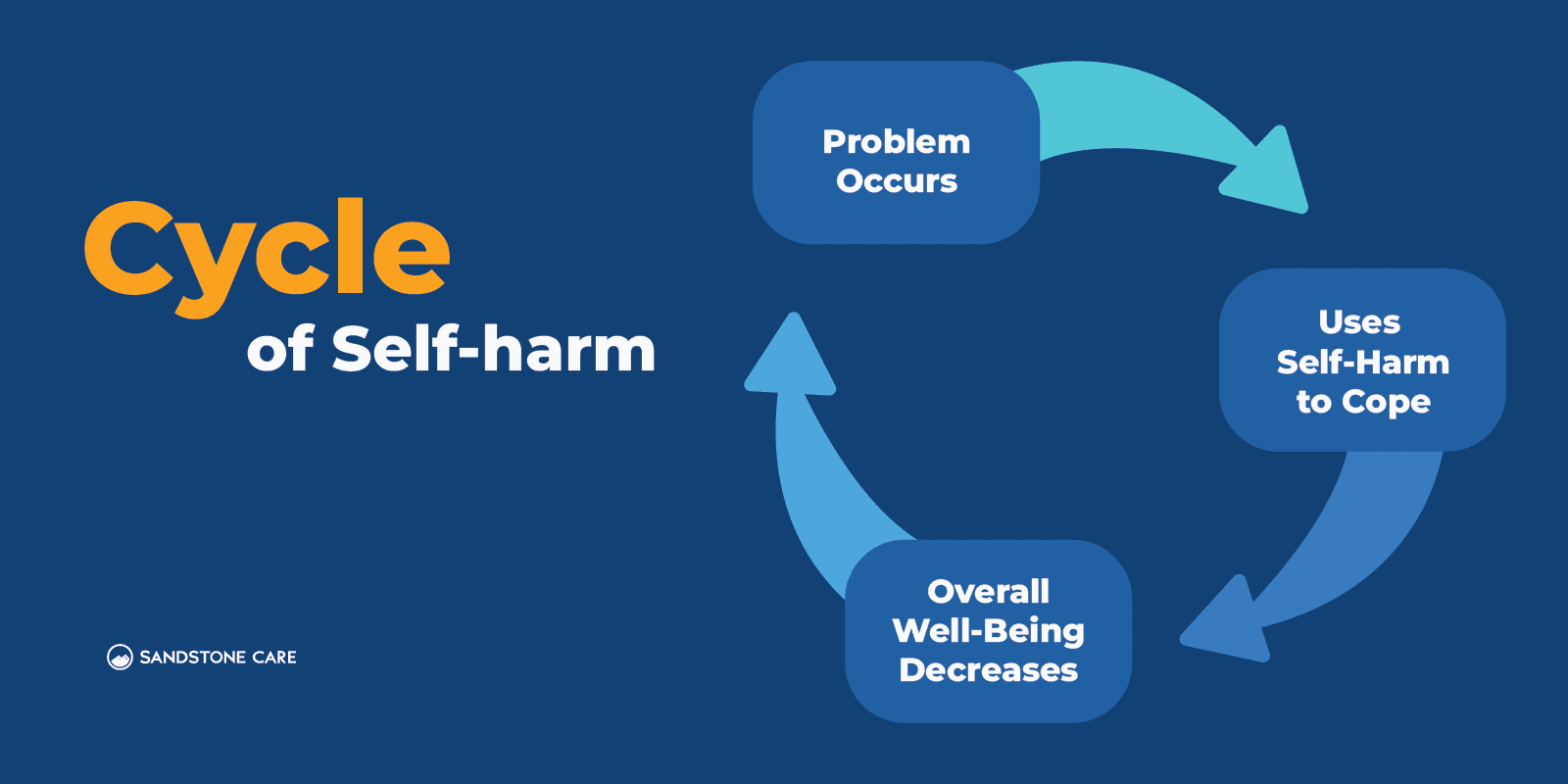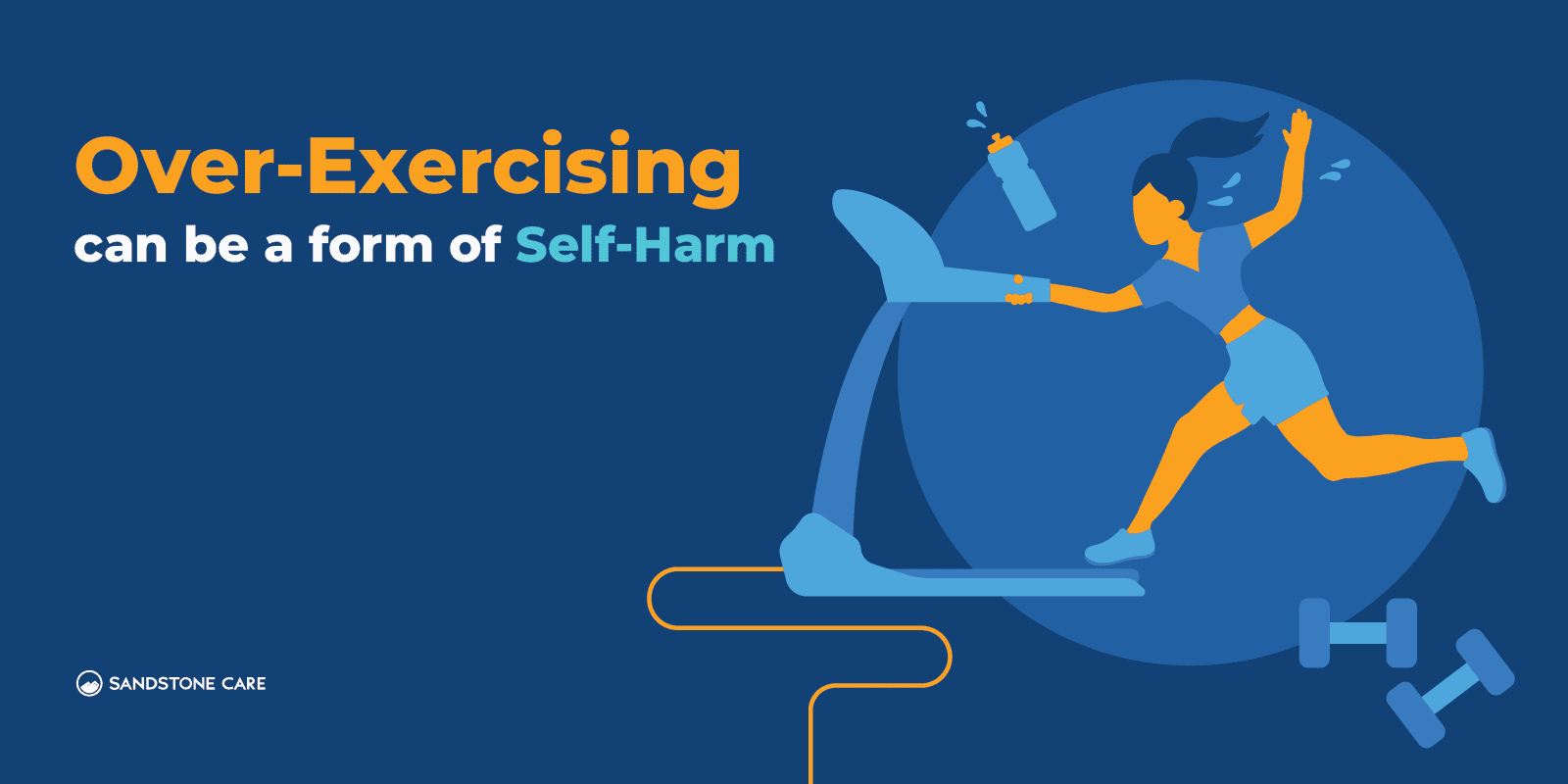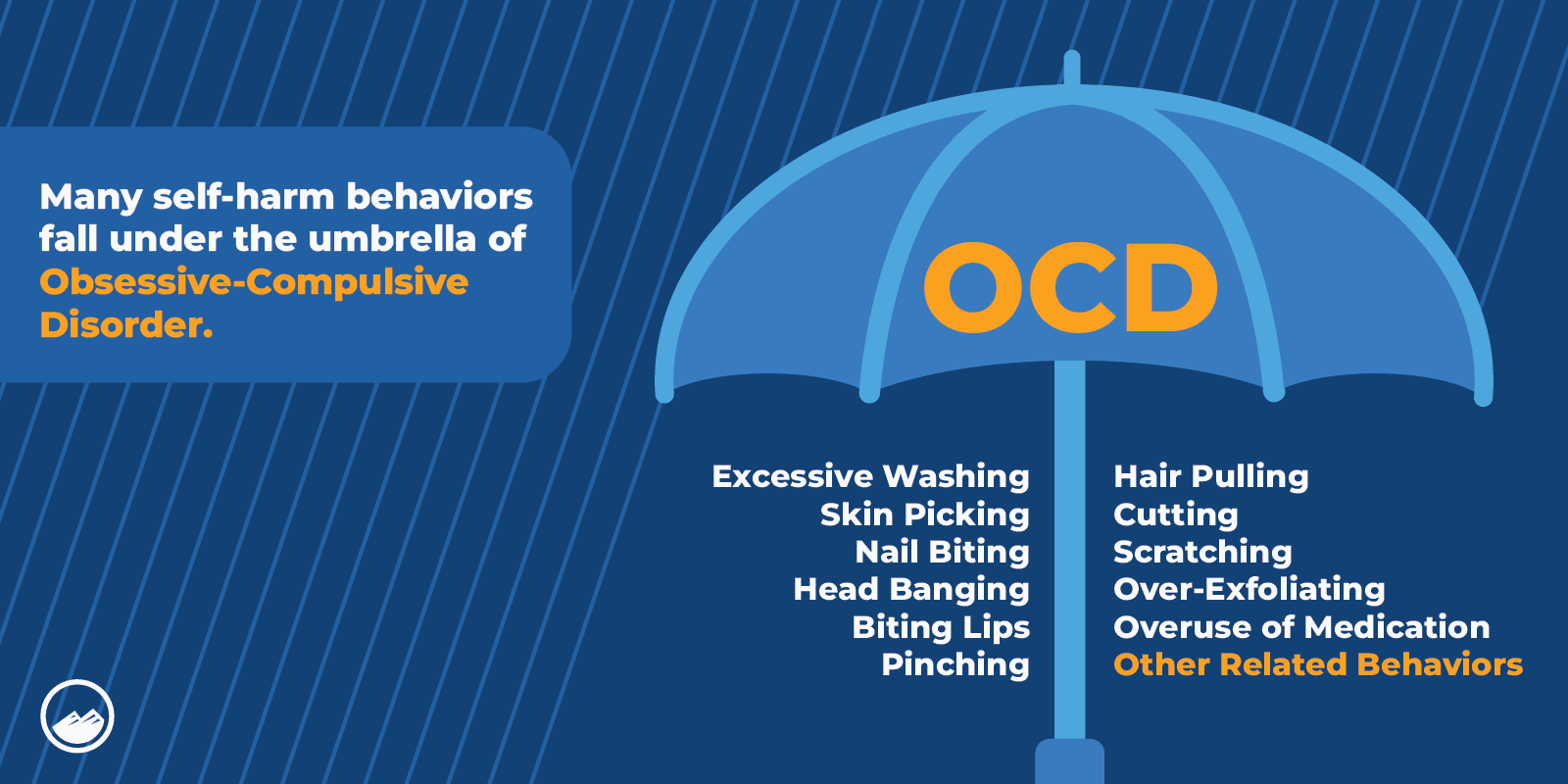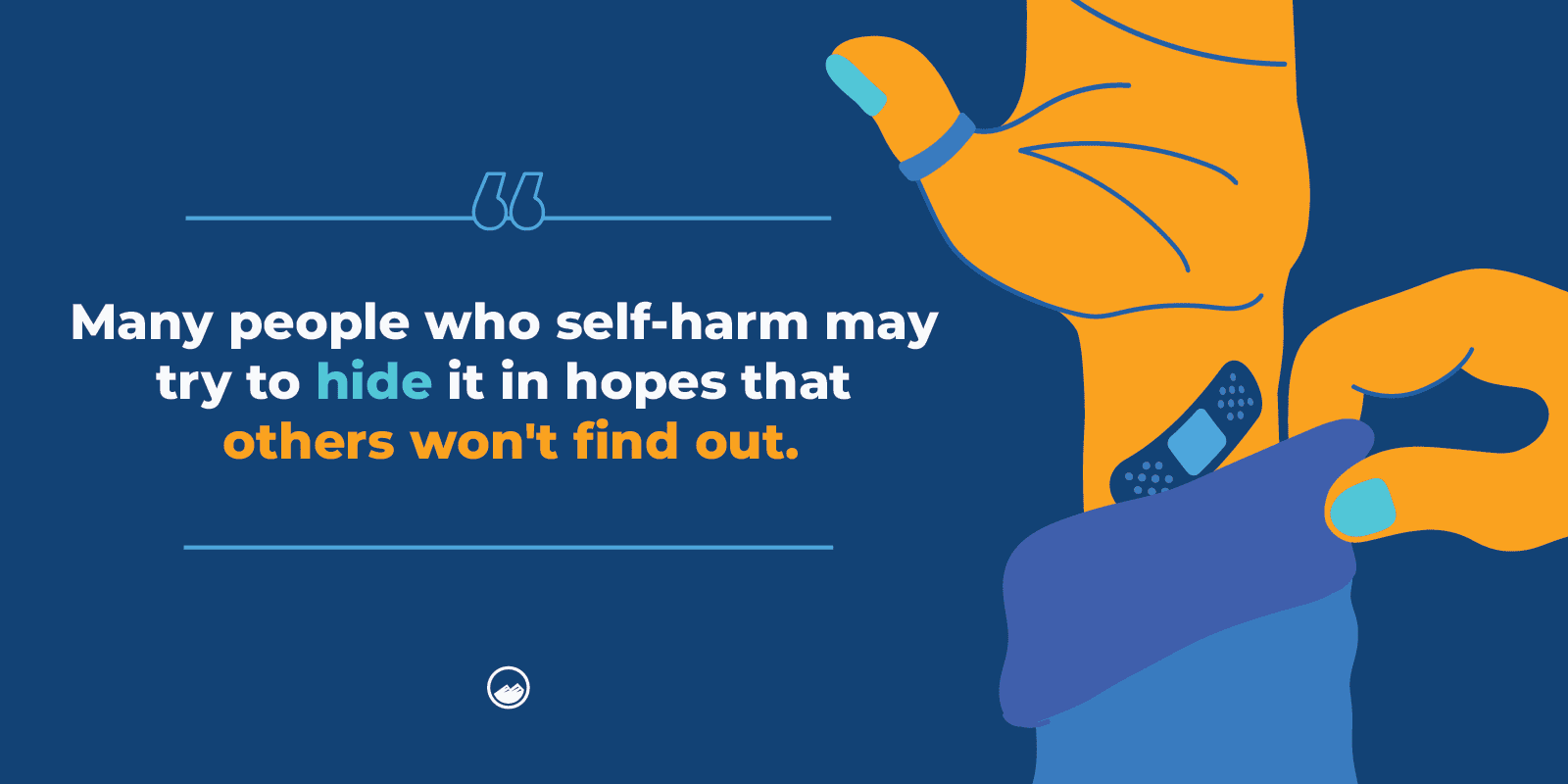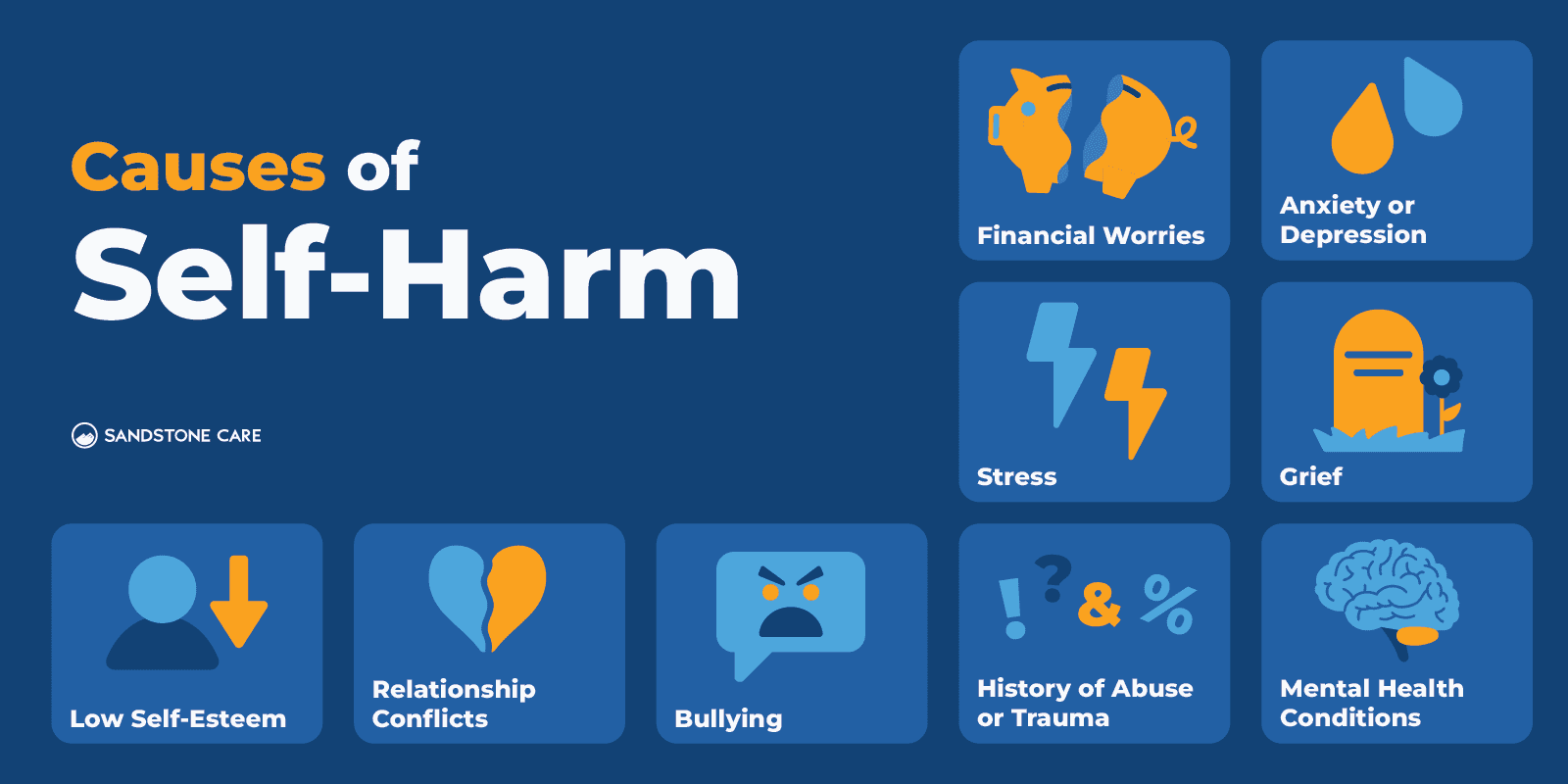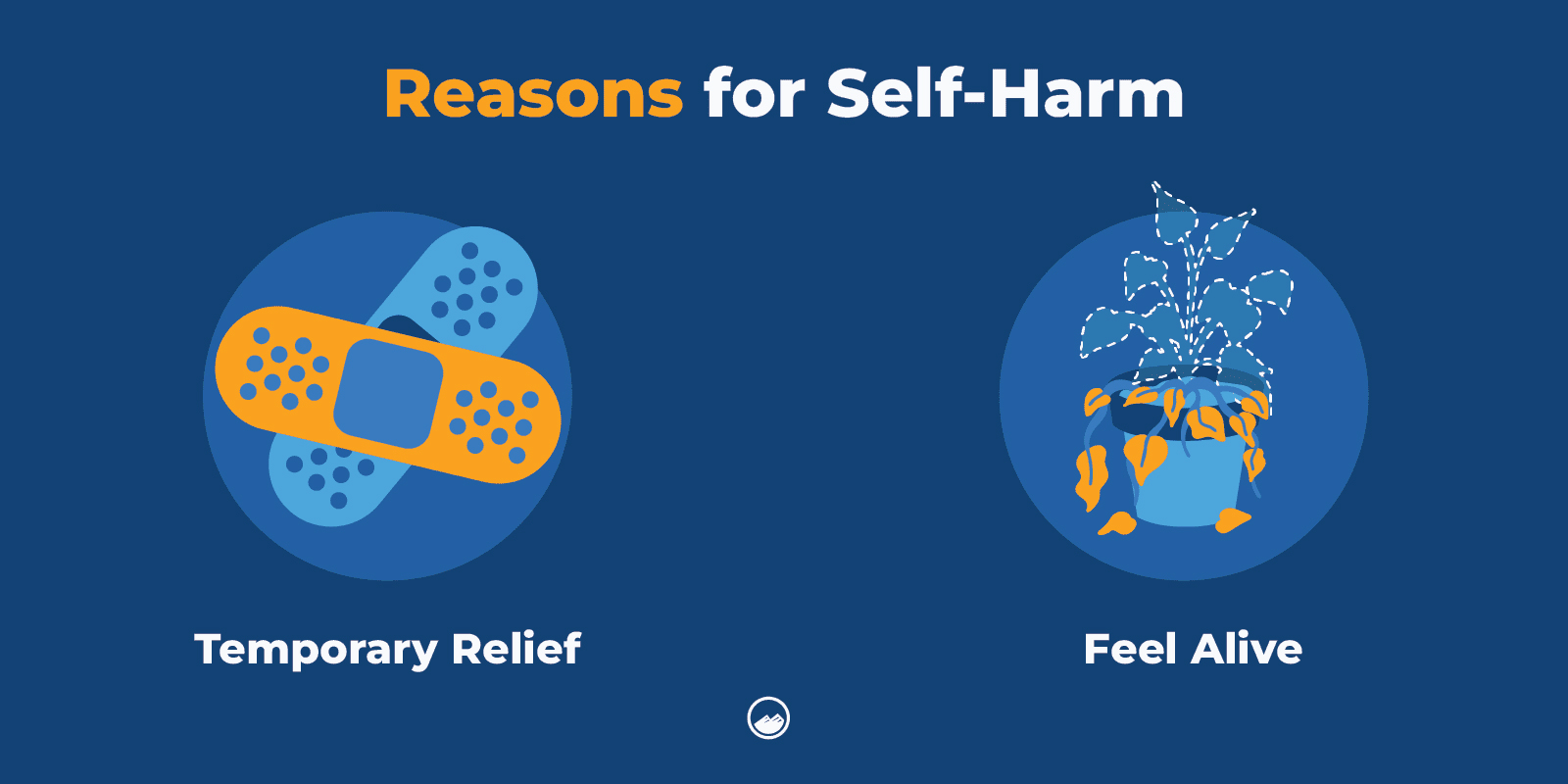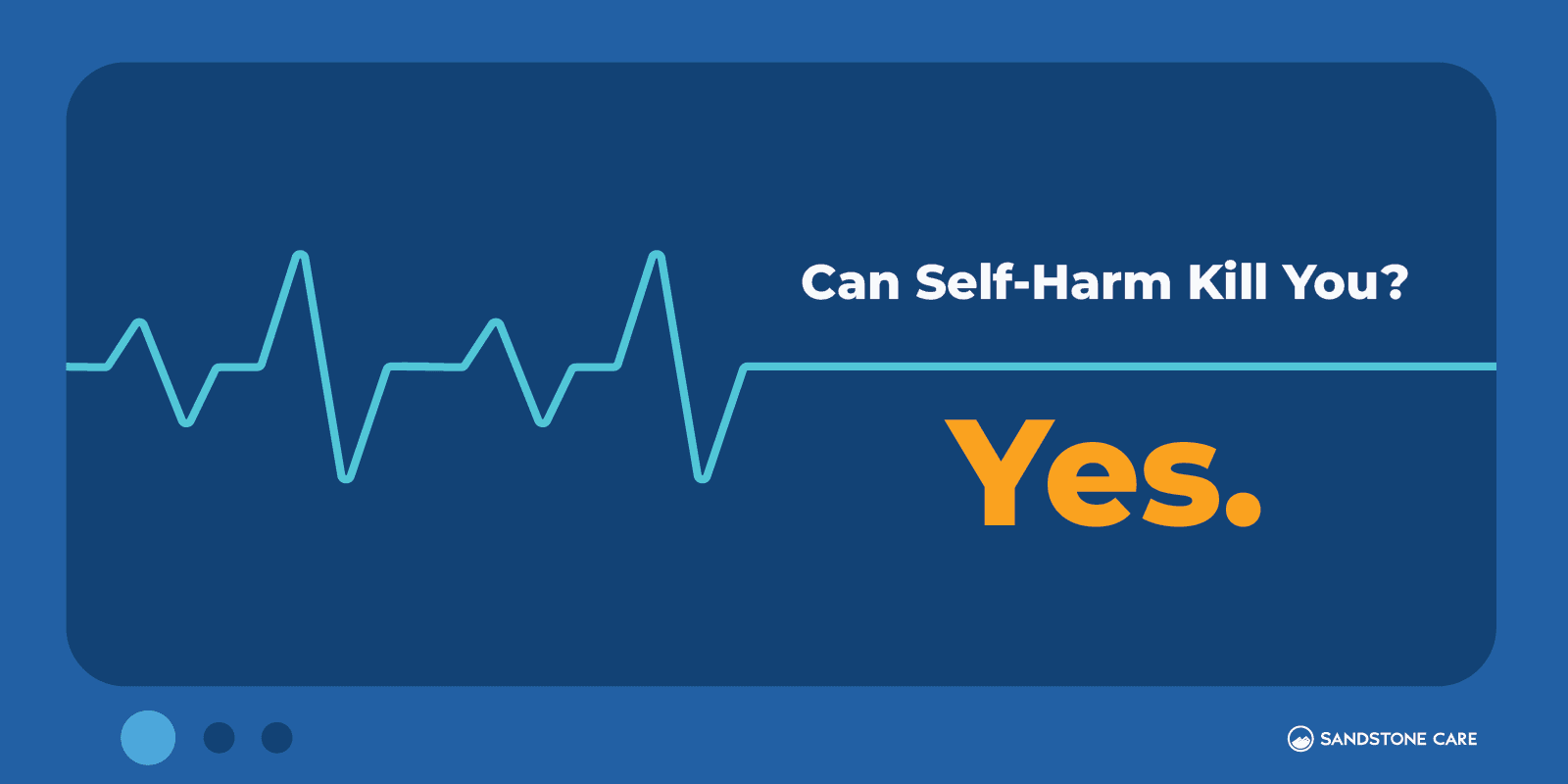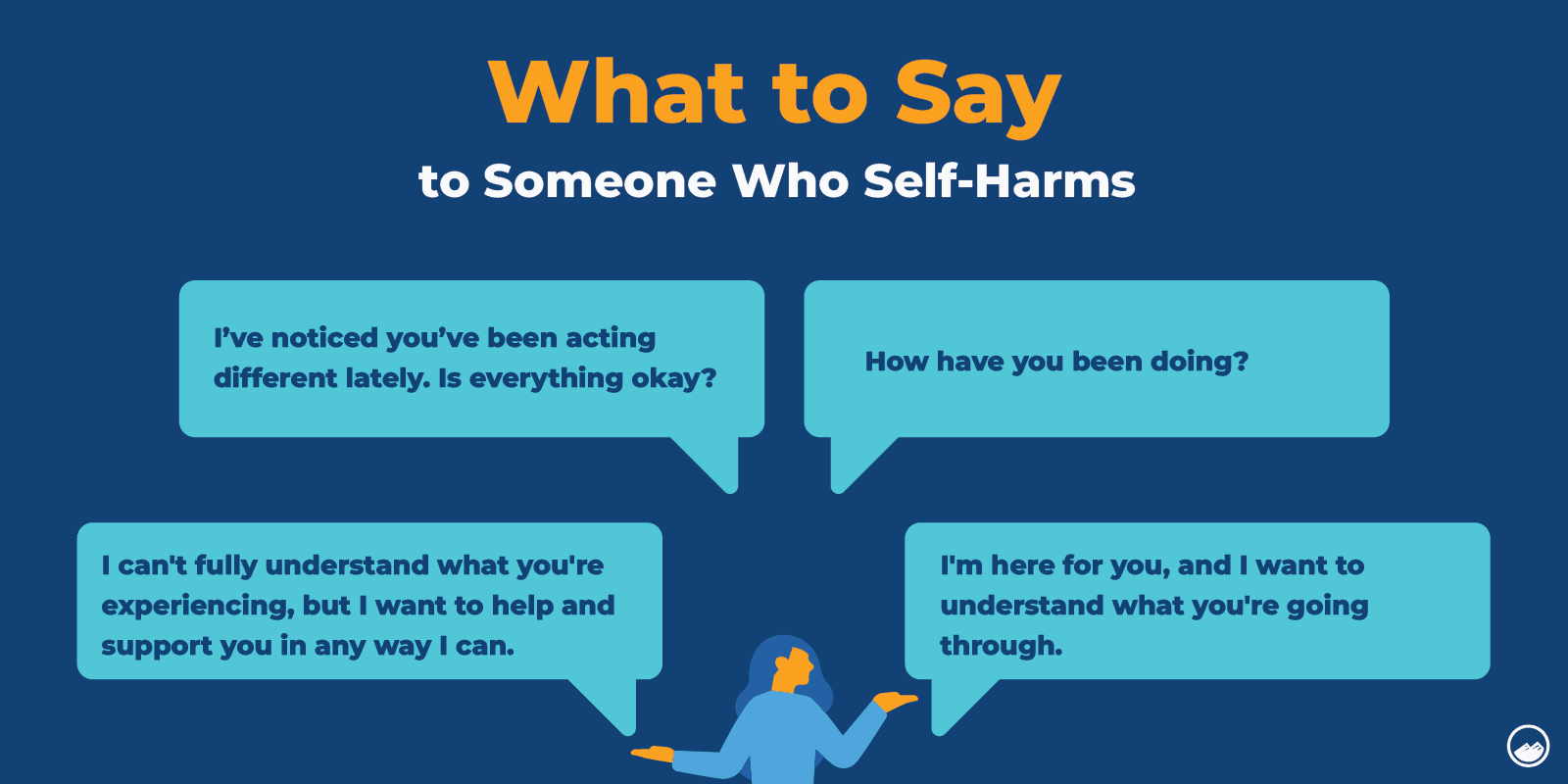How Do I Stop Someone Who Self Harms?
If you are trying to help someone who self-harms, it is essential to be there for them, listen to them, and offer a safe space to come when they need to talk.
Helping them connect to a mental health professional is a huge part of stopping the cycle of self-harm.
How to Prevent Self-Harm?
Taking care of yourself and practicing healthy habits and coping strategies can help prevent self-harm.
Finding ways to distract yourself, whether going outside or on walks, getting physical exercise, calling friends, journaling, or other things you enjoy, can help prevent you from feeling the urge to self-harm.
Alternatives to Self-Harm
What Can I Do Instead of Self-Harm?
Self-harm is often used to cope with emotional pain, difficult feelings, and experiences. Learning alternative ways to cope with these feelings can help a person work through these moments without falling into harmful and unhealthy habits.
The first step is recognizing when you are experiencing difficult emotions or when you feel the urge to self-harm. Instead of self-harming, you can turn to other coping mechanisms, such as going outside, getting physical exercise, talking to someone, meditating and breathing exercises, or journaling and using other creative outlets as a new lifeline.
What to Do When You Want to Self Harm?
Some people find it helpful to distract themselves when they get the urge to self-harm; others also find alternatives to use. These may include:
- Drawing on themselves
- Going on a walk
- Turning on music
- Holding an ice cube on your skin where you would self-harm
- Take a hot or cold shower
- Call someone you love and trust
- Write out your feelings
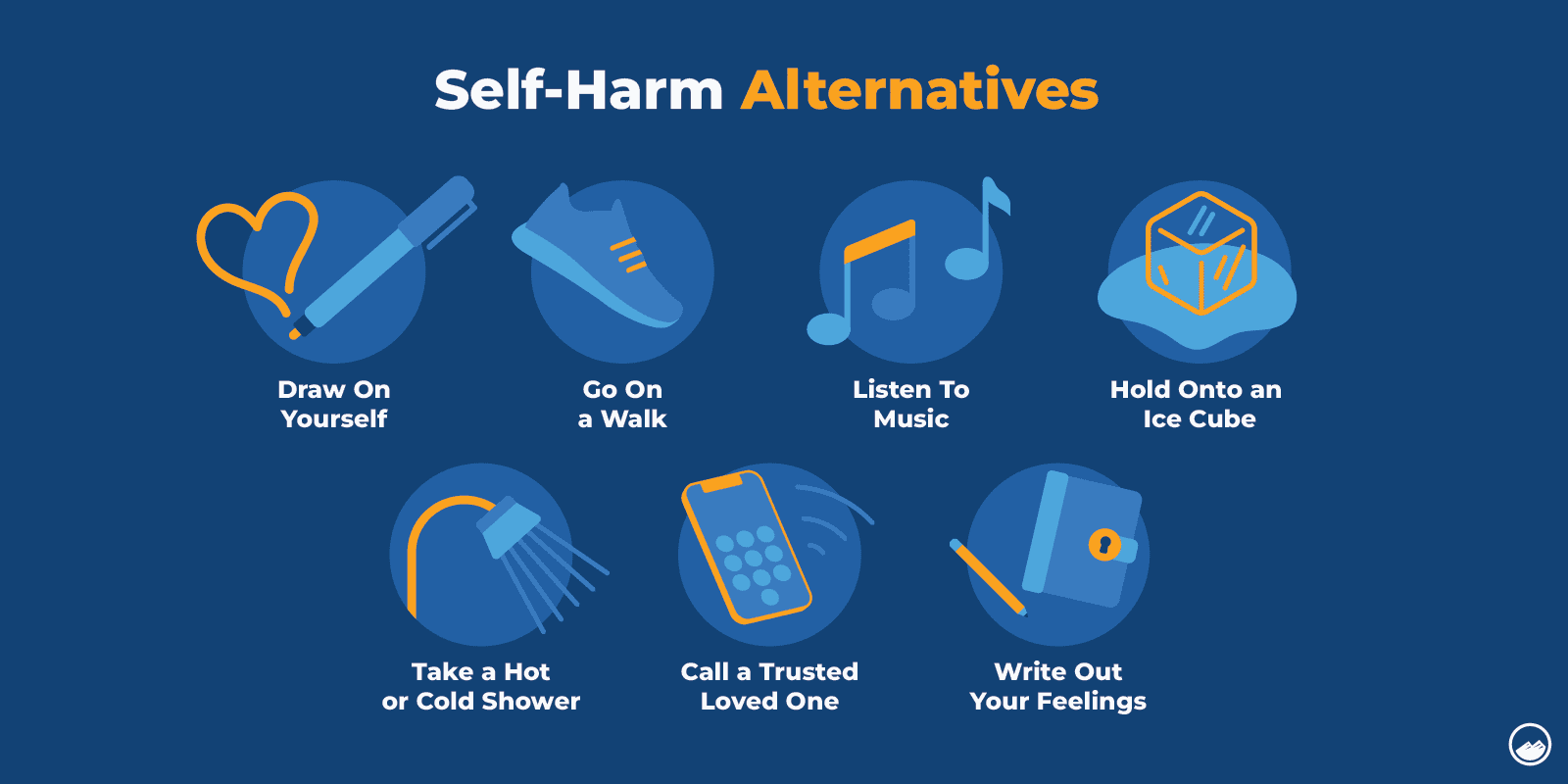
Treatment for Self-Harming
How Is Self-Harm Treated?
Treatment for self-harm involves treating the underlying problem. Often, self-harm is linked to an underlying mental health condition, which treatment should focus on.
Self-harm treatment focuses on helping individuals work through their challenges, mentally and emotionally, and build healthy coping mechanisms.
Psychotherapies like cognitive behavioral therapy (CBT), dialectical behavior therapy (DBT), or mindfulness-based healthcare can help individuals identify unhealthy patterns, learn how to regulate emotions, manage stress, and live in the present moment.
If injuries from self-harm are severe, sometimes inpatient care is needed to help individuals recover in a safe environment and figure out what the best next steps are to take.
How Can I Stop Self-Harming?
Self-harming can be difficult to stop, and you can feel like you have lost control over self-harming behaviors.
The first step to stop self-harming is reaching out for help. Getting professional help and addressing what is really going on inside can help adolescents, young people, and adults find relief and alternative coping mechanisms to self-harm.
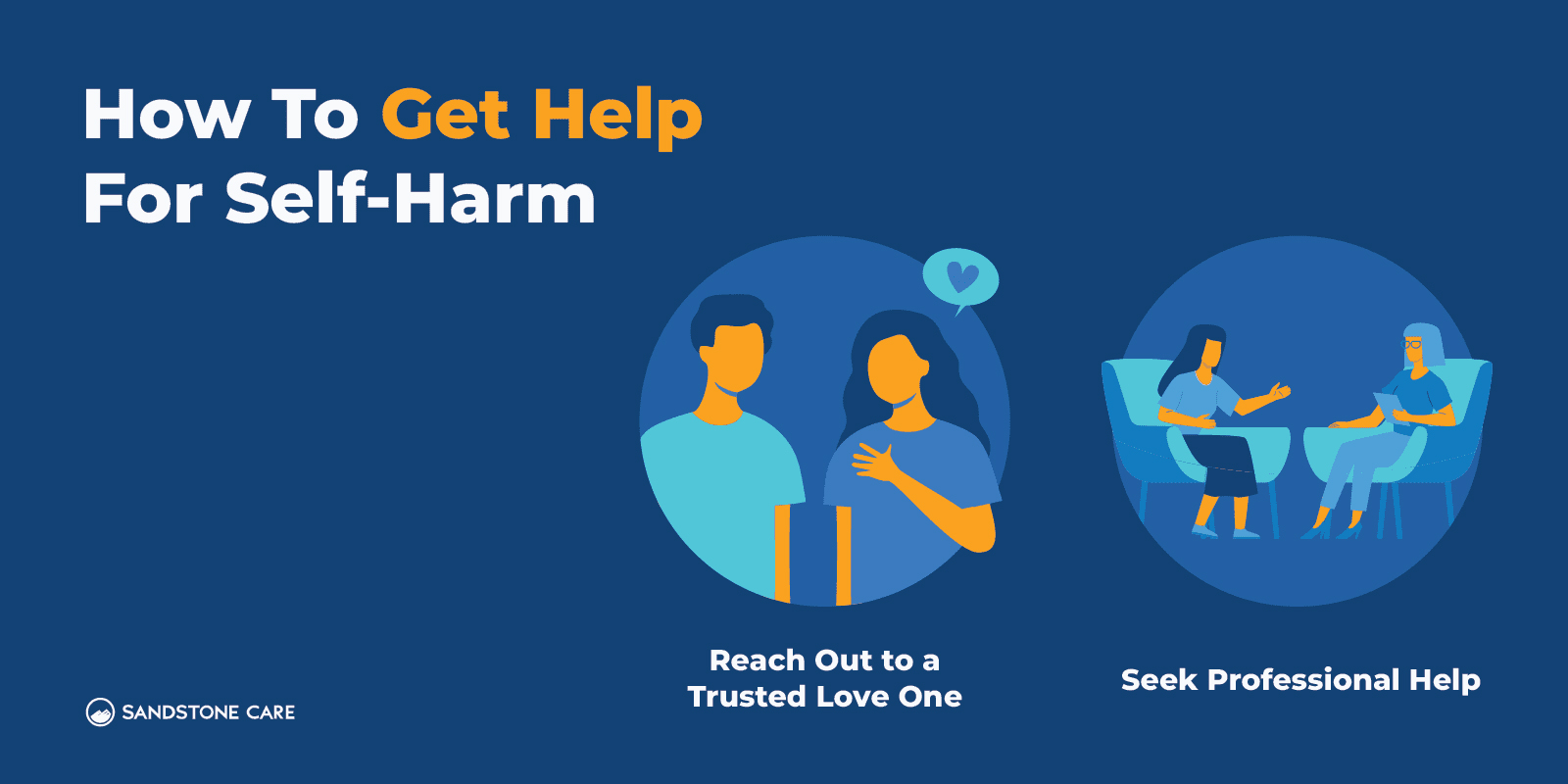
How Do You Tell Your Parents You Self Harm?
Having a conversation with your parents about self-harm can feel scary and overwhelming at first.
Preparing yourself and what you want to say before you start the conversation can help give a clear message and share with them everything you are comfortable with. Be open and honest with them, and give them time to process what you are saying.
Asking for help can be challenging but integral for your life, health, and healing.
What Does Relapse Mean in Self-Harm?
A relapse is when someone returns to a behavior or habit that they haven’t engaged with for some time.
How Do You Heal Self Harm Cuts?
If you are injured or wounded, it is important to get care right away. In severe and emergency cases, call 911. If you are caring for self-harm cuts at home, you should make sure to clean them and cover them with sterile dressings to prevent infection.

